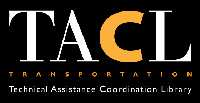In this digitally-powered, mobile age, transportation providers have to share data across multiple applications and tools and with regulators and other government entities. This is crucial for enabling travelers to plan trips and for cities to understand transportation needs. Moreover, with the widening scope of mobility apps like Google Maps, Apple Maps, Transit, and Moovit, it is increasingly more important to share service information in ways that can be readily interpreted by a variety of platforms.
Specifications and standards are fundamental in this process. They establish reliable, agreed-upon frameworks for communicating and exchanging transportation data. In public transportation and shared mobility, these data carry information like routes, stops, schedules, and fares, and regulatory information like parking rules or operational areas. This paper provides an overview of major transportation data specifications and standards and how they can be useful to professionals across the transit and shared mobility industries. For mobility service providers, in particular, it provides resources that can help you make data more readily available for agencies and the public and allow for integration of services.
Source: https://learn.sharedusemobilitycenter.org/casestudy/the-role-of-data-specifications-in-creating-an-integrated-transportation-system/
TA Centers: SUMC
Terms: Access, Accessibility, Data management, Data sharing, Demand responsive transportation, Electronic data exchange, Equity, Mobility applications, Multimodal transportation, Paratransit services, Payment, Persons with disabilities, Physical disabilities, Public private partnerships, Public transit, Ridesharing, Ridesourcing, Shared mobility
Tags: access, accessibility, accessible, data sharing, data standardization, demand response, demand responsive, disabilities, equity, fixed route transit, MAAS, micromobility, microtransit, Mobility as a Service, multimodal transportation, paratransit, payment, payment integration, payments, public transit, public transportation, public-private partnerships, ride sourcing, ride splitting, ridesourcing, ridesplitting, shared mobility, TNC, TNCs, transit, trip planning

